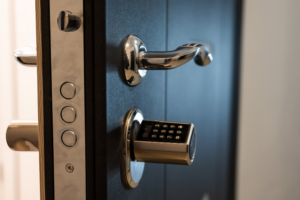Locksmith services are essential for maintaining the security and functionality of our homes, cars, and businesses. Unfortunately, the industry is not immune to scams and fraudulent activities. Understanding the common locksmith scams and how to avoid them can save you time, money, and frustration. In this blog, we will explore some of the most prevalent scams and provide tips on how to protect yourself from falling victim to them.
The Bait and Switch Scam
What is the Bait and Switch Scam?
The bait and switch scam is one of the most common locksmith scams. It typically involves a locksmith advertising incredibly low prices to attract customers. Once the locksmith arrives, they claim that the job is more complicated than initially described and demand a much higher fee. This tactic preys on customers’ desperation and lack of knowledge about locksmith services.
How to Avoid the Bait and Switch Scam
To avoid falling victim to the bait and switch scam, follow these steps:
- Research and Verify: Always research the locksmith company beforehand. Check reviews and ratings from previous customers.
- Get a Written Estimate: Request a written estimate before any work begins. This can help ensure that the price quoted over the phone matches the final bill.
- Ask for Credentials: Legitimate locksmiths will have proper identification and licensing. Don’t hesitate to ask for these credentials.
The Drilling Scam
What is the Drilling Scam?
In the drilling scam, a locksmith insists that the only way to open a lock is by drilling it, thereby destroying the lock and necessitating a costly replacement. This scam exploits the customer’s lack of expertise, as drilling should be a last resort.
How to Avoid the Drilling Scam
Here are some tips to avoid the drilling scam:
- Second Opinion: If a locksmith suggests drilling, seek a second opinion from another professional.
- Knowledge is Power: Educate yourself about common locksmith techniques. Most modern locks can be picked without drilling.
- Use Reputable Locksmiths: Hire locksmiths with good reputations and positive reviews to minimize the risk of encountering scams.
Overcharging for Emergency Services
What is Overcharging for Emergency Services?
This scam takes advantage of the urgent nature of lockout situations. The locksmith quotes a reasonable price over the phone but significantly increases the charge upon arrival, citing various unforeseen complications.
How to Avoid Overcharging for Emergency Services
To protect yourself from being overcharged:
- Clarify Costs Upfront: Ensure you understand the complete cost, including any additional fees for emergency services, before the locksmith arrives.
- Local Locksmiths: Use local locksmiths who are less likely to inflate prices compared to out-of-town scammers.
- Written Confirmation: Ask for a written confirmation of the agreed-upon price before any work starts.
Fake Locksmiths
What are Fake Locksmiths?
Fake locksmiths are individuals who pose as legitimate professionals but lack the necessary training, certification, or intention to perform the job correctly. They often operate under names similar to reputable companies to deceive customers.
How to Avoid Fake Locksmiths
Here’s how to identify and avoid fake locksmiths:
- Verify Credentials: Always ask for identification and proof of certification.
- Check Company Details: Verify the company’s address, phone number, and website. Be cautious of locksmiths who only use a generic contact number.
- Read Reviews: Look for reviews and testimonials from previous customers. A lack of online presence or negative reviews can be a red flag.
Hidden Fees Scam
What is the Hidden Fees Scam?
The hidden fees scam involves a locksmith who provides a low initial quote but adds numerous hidden fees once the job is completed. These fees can include charges for labor, travel, and unnecessary services.
How to Avoid the Hidden Fees Scam
Avoiding hidden fees involves:
- Detailed Quotes: Request detailed quotes that include all potential charges before the locksmith begins work.
- Ask Questions: Don’t hesitate to ask questions about any fees that seem unclear or unreasonable.
- Read the Fine Print: Carefully read any contracts or agreements to ensure there are no hidden clauses.
Unnecessary Lock Replacement
What is Unnecessary Lock Replacement?
Some unscrupulous locksmiths will suggest that locks need to be replaced even when simple repairs or rekeying would suffice. This leads to higher costs for the customer.
How to Avoid Unnecessary Lock Replacement
To avoid unnecessary lock replacement:
- Educate Yourself: Learn about different lock issues and potential solutions.
- Get Multiple Opinions: Seek opinions from multiple locksmiths to confirm whether replacement is necessary.
- Trustworthy Locksmiths: Use trusted locksmiths known for their honesty and integrity.
Tips for Choosing a Reputable Locksmith
How to Choose a Reputable Locksmith
Choosing a reputable locksmith is crucial to avoid scams. Here are some tips:
- Local Recommendations: Ask friends, family, and neighbors for recommendations.
- Professional Affiliations: Look for locksmiths who are members of professional organizations like the Associated Locksmiths of America (ALOA).
- Check Credentials: Verify the locksmith’s credentials and certifications.
- Transparent Pricing: Choose locksmiths who provide clear and transparent pricing.
Conclusion
Locksmith scams are unfortunately common, but with the right knowledge and precautions, you can protect yourself from becoming a victim. Always do your research, ask for credentials, and get written estimates to ensure you are dealing with a reputable professional. If you find yourself in need of locksmith services, remember that Major Island Locksmith is here to help with transparent and reliable services.
Contact us at info@majorislandlocksmith.com or call 516-779-6698 for trustworthy locksmith solutions.




